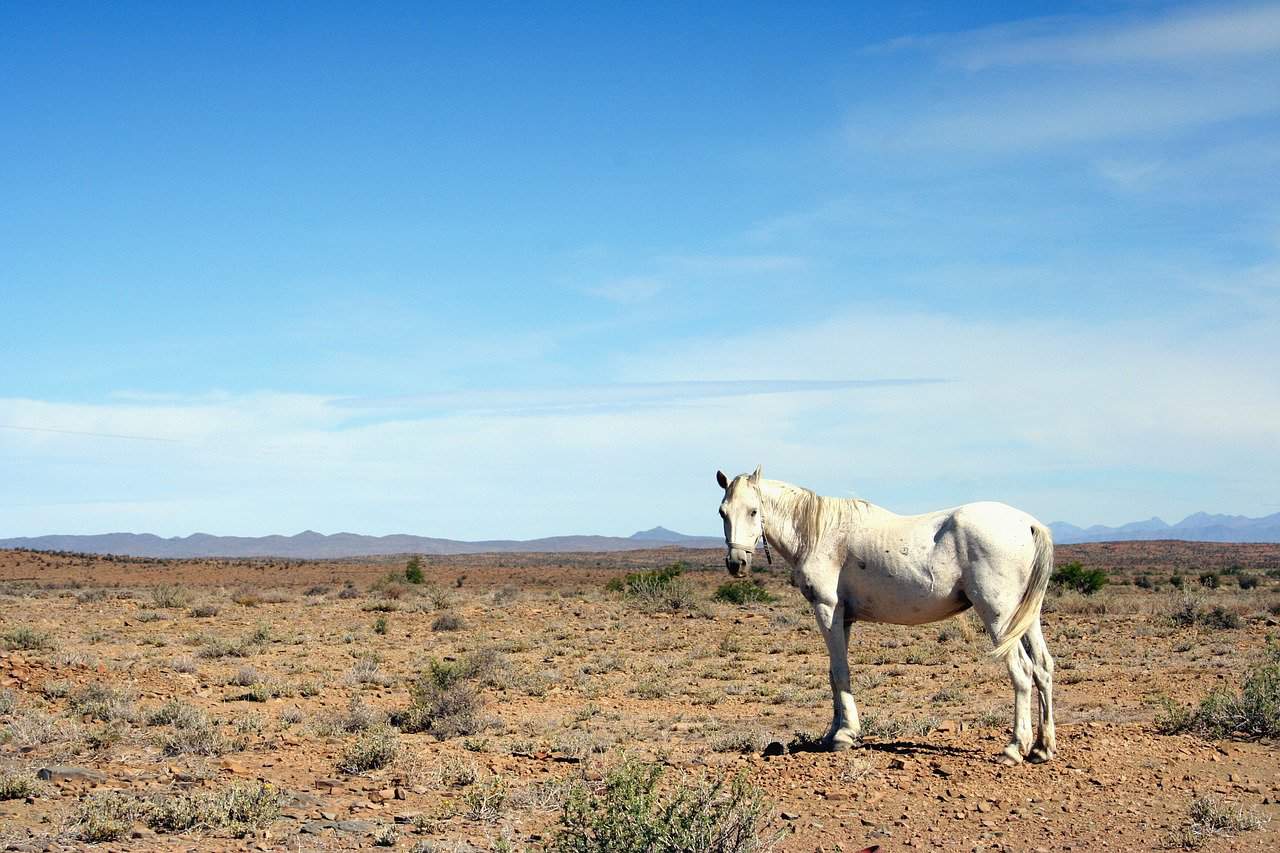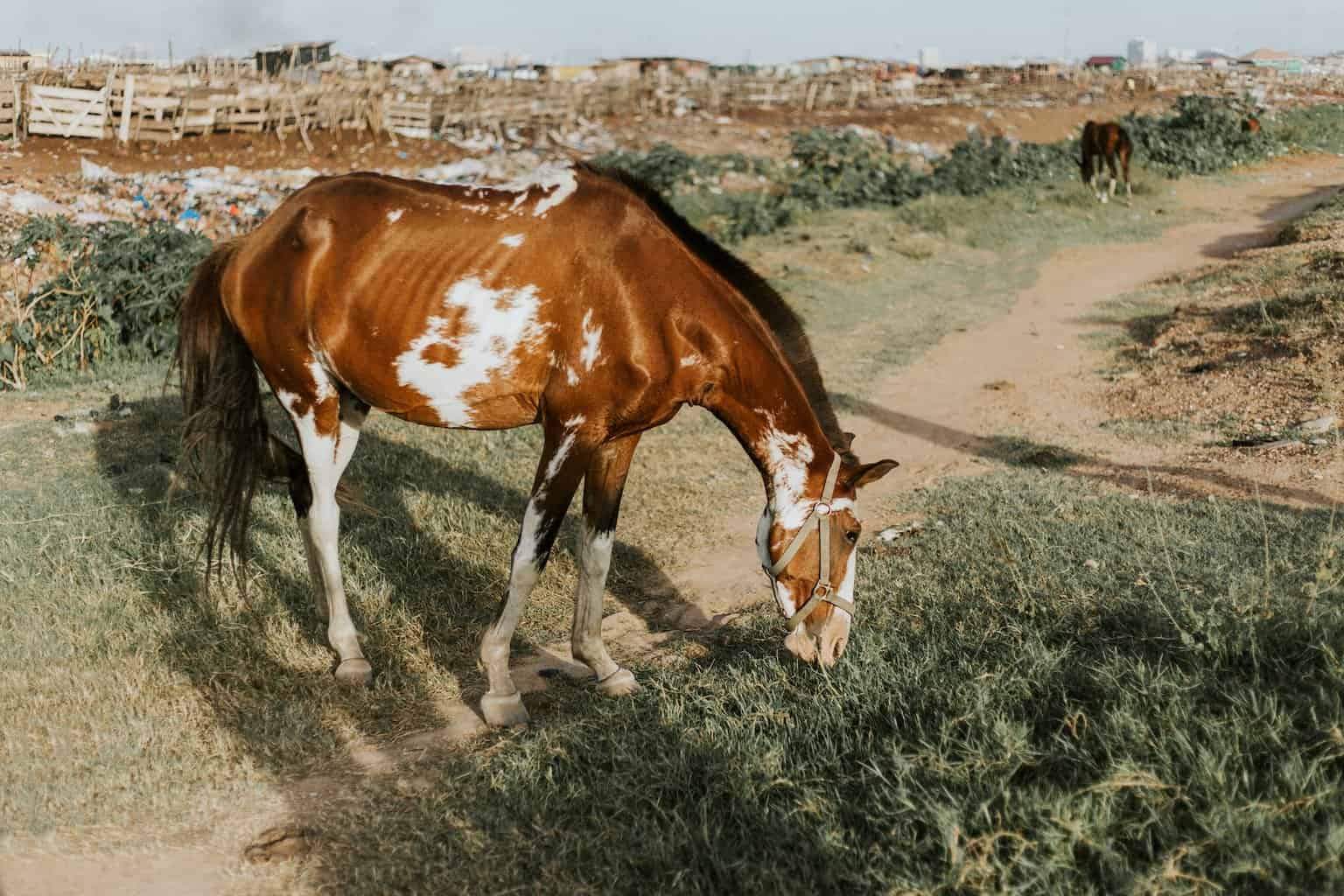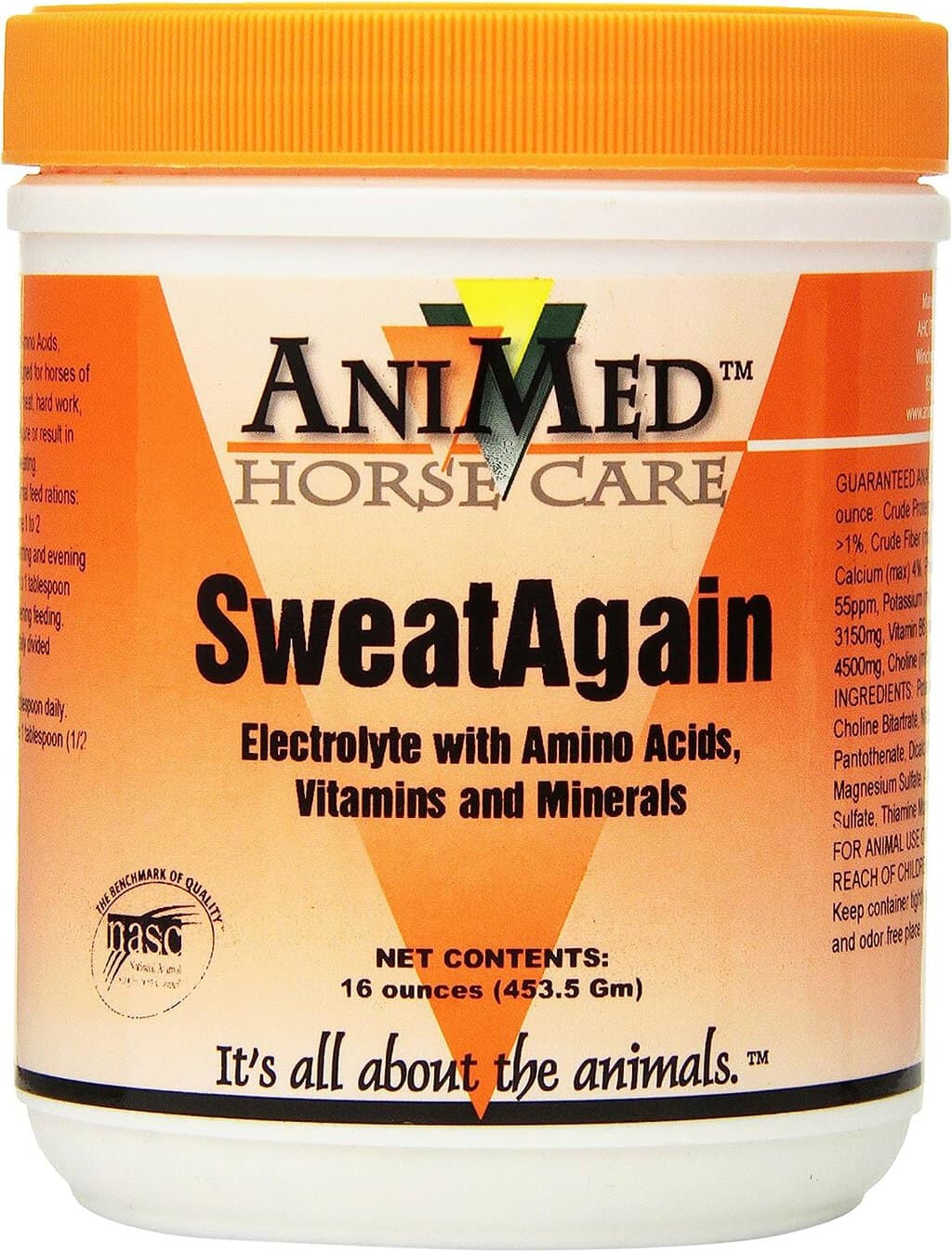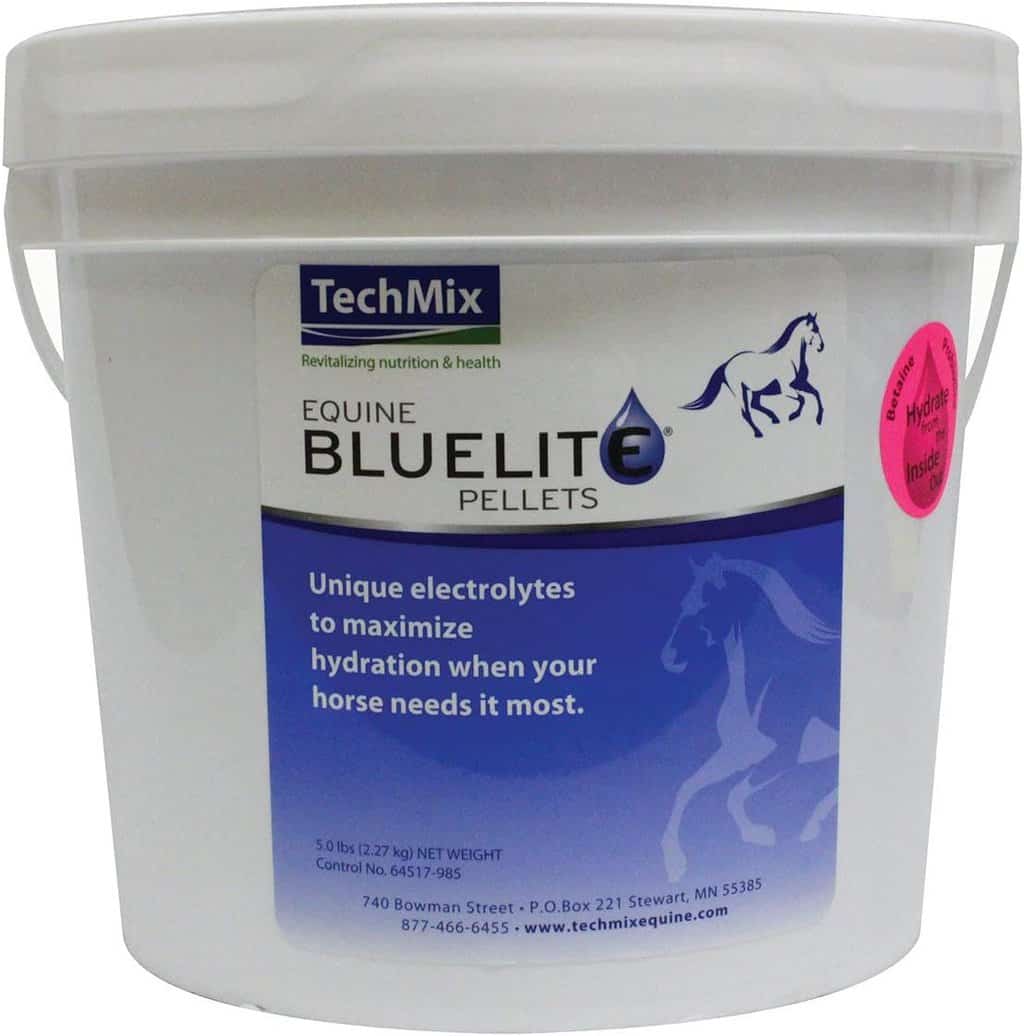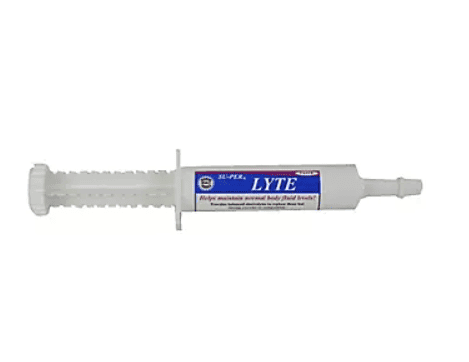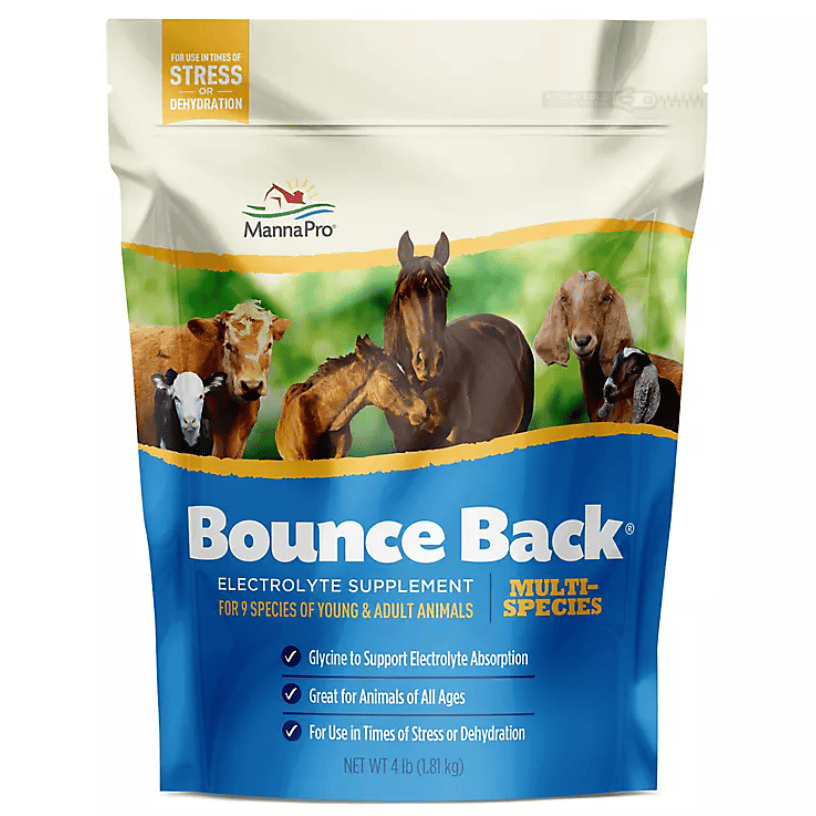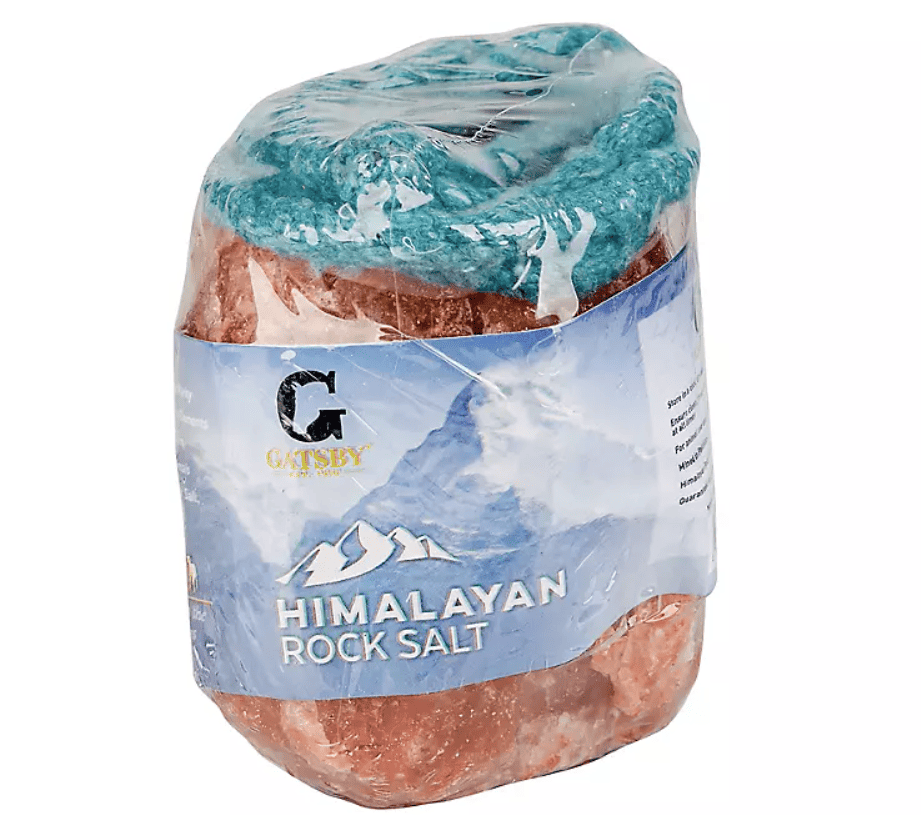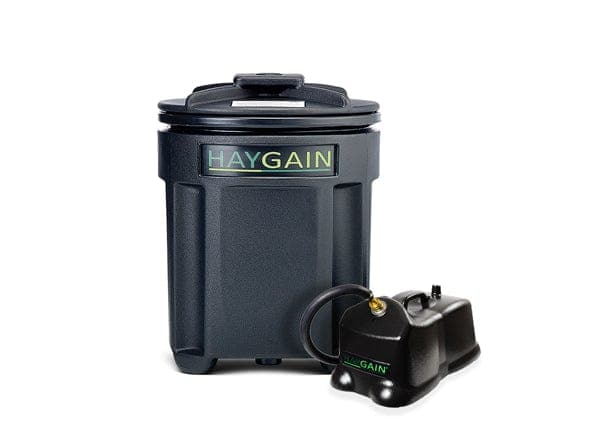- What is a Gaited Horse - October 5, 2023
- What to Look at When Getting a New Farrier - September 21, 2023
- Best Horse Feeds for Older Horses - September 21, 2023
- Bottom Line Up Front
- Horse Hydration Know-How
- Factors Influencing Horse Hydration and Horse Dehydration
- Signs of Horse Dehydration
- Emergency Care for a Dehydrated Horse
- Supplementing for Correct Horse Hydration
- Corrective Electrolytes for Horses That Don’t Sweat
- Best Electrolytes for Horses in Heavy Work
- Pre-Event Electrolytes for Competition Horses
- Episodic Electrolyte Supplement for Horses
- Best Daily Ad-Lib Horse Electrolyte
- Horse Hydration Cheat Sheet
- FAQs
- Conclusion
As a horse owner, you probably spend much more time worrying about how much your horse eats (since that eats your budget) than you do about how much water they drink. But horses can dehydrate too, and it can have terrible, even fatal, consequences.
As a stable yard manager, I have had dreadful experiences with dehydrated horses, causing serious risks to the horse. While all horse owners will keep a large bucket with water in their stable, some horses don’t drink the water and can quickly become dehydrated.
In one such case, a horse with colic was severely dehydrated, which caused complications. The vet couldn’t give the horse an intravenous injection since the horse’s veins had almost collapsed.
A second case saw a horse die because of illness-related dehydration and shock. Thankfully, none of these horses were mine. Though, their owners could have avoided both cases with careful hydration supportive care.
So how do you ensure your horse remains hydrated, and how do you treat horse dehydration? Here’s everything you need to know.
Bottom Line Up Front
By supplementing your horse for good hydration, you can prevent dehydration and ensure your horse naturally hydrates. Feed additives are the usual choice, and these are great:
- Corrective Electrolytes for Horses That Don’t Sweat: AniMed SWEATAGAIN Electrolyte
- Best Electrolytes for Horses in Heavy Work: TechMix Equine BlueLite Pellets 5lb
- Pre-Event Electrolytes for Competition Horses: SU-PER Lyte Paste Supplement
- Episodic Electrolyte Supplement for Horses: Manna Pro Bounce Back Electrolyte
- Best Daily Ad-Lib Horse Electrolyte: Gatsby Himalayan Rock Salt
Horse Hydration Know-How
As the saying goes: You can take a horse to water, but you can’t make them drink. When a horse begins to dehydrate, they often lose the desire to drink water. They may also drink water but still dehydrate. Confusing, right?
Like human athletes, a horse also sweats, losing salt, which upsets their electrolyte balance. As a result, horses can quickly stop absorbing water (even if they drink), which can cause many complications, from colic and choking to heart failure, kidney failure, and muscle death.
What Does Horse Hydration Mean?
A horse has about 12 gallons of blood, which is mostly water. Of course, there is also water in the muscles, soft tissues, and organs, not to mention in their 70-foot-long digestive tract. Now, a horse sweats more than people, losing a lot of water while exercising and during extreme heat. A horse that’s busy training can lose as much as a gallon of water (as sweat) every 15 minutes.
So, while most equine sites recommend that a horse has 5-10 gallons of fresh water per day, a horse may drink more than that when they have lost a lot of fluid due to sweat or through their digestive tract with diarrhea.
I have learned that a horse needs enough water to meet their basic daily needs (5-10 gallons), and whatever else they lose must be replaced. So, a physically active horse, or during extreme heat, could need as much as 10-20 gallons of water per day.
And if human athletes require electrolytes as part of their hydration routine, your horse will need them too.
How Much Water Does a Horse Need per Day?
The consensus is that a horse needs 5-10 gallons of water daily. However, in summer, they will need more water. In winter, a horse probably doesn’t dehydrate as much because it’s cooler, so they often drink less. Horses that exercise right through the year will still need more water all year round.
The Importance of Salt for a Hydrated Horse
A much less known fact is that horses need an average of 55-65 grams of salt daily to balance water intake. When they sweat, they also lose vital salt through sweat (it shows as that white foamy sweat from hard work) called latherin.
This means you need to supplement your horse’s salt intake accordingly, and you also need to balance their protein intake with their level of work, as they also lose protein through sweat during hard work.
Salt helps trigger a thirst response, which makes the horse drink. My horses prefer to have extra salt after each feed session and will often only drink once they’ve had salt.
Factors Influencing Horse Hydration and Horse Dehydration
There are many reasons why a healthy horse could become dehydrated, and you have to monitor whether your horse is dehydrated. This section will cover what to look for and what to do if you suspect your horse is dehydrated.
Signs of Horse Dehydration
When a horse dehydrates, they start showing subtle signs, but soon, you will see more severe symptoms. Knowing what is natural for your horse’s anatomy and particular build is important. Look for:
Dullness and Listless Behavior
Your horse may stand with its head lowered, looking miserable and tired. They may stop paying much attention to flies landing on them, as this could seem like too much energy to expend.
Loss of Shine to Their Eyes and Gums
If a horse is dehydrated, they may have dry eyes, and their gums can become pale and tacky to the touch. Trying to relieve the dryness, your horse may lick their lips, or their tongue may even begin hanging loosely in their mouth.
When pain sets in, your horse’s eyes could become tightened, and their mouths may clench.
Loss of Skin Tone
A dehydrated horse will lose skin tone, and when you perform a pinch test, their skin will not bounce back to a normal position.
To do a pinch test:
Take a section of the skin on their neck between your thumb and index finger and pull it gently away from their body. Release it; the skin should instantly return to normal, showing good hydration.
For a dehydrated horse, the skin will remain pinched much longer and not return to its normal tautness as soon.
Lowered or Racing Pulse and Respiration
Your horse may also begin experiencing respiratory distress, and their breathing and heart rate could become irregular (either too fast or too slow).
Dry or Crumbly Fecal Matter
Dehydrated horses often struggle to poop or urinate (stale). Their droppings should typically be soft and round with a sheen to it. If the droppings are crumbly or come out as a scattered mess, you could be dealing with digestive distress caused by dehydration.
Likewise, I know that if one of my horses urinates a dark color or struggles to urinate, the chances of dehydration are high.
Poor Appetite
A horse that suddenly doesn’t show interest in feed, hay, or grazing may be dehydrated. Their gut is compromised, and they won’t want to eat and have roughage enter their stomachs. Cramping and heave lines could also indicate a dry or sticky gut because of dehydration.
Fever
Since your horse is bound to overheat when dehydrated, they could get a fever, followed by a cold sweat as their organs strain.
Disorientation
If your horse does move, they will likely drag their feet, struggle with balance, and lack coordination in their limbs.
Emergency Care for a Dehydrated Horse
When you believe your horse may be dehydrated, you should make a vital decision: Can you help hydrate them on your own, or is their dehydration so advanced that you’ll need the assistance of a vet?
You can encourage a horse to drink with supplements, eat wet foods, and even soak their hay. However, if your horse is already so dehydrated that they are cold, has dry eyes and tacky gums, and is disoriented when moving, you won’t be able to fully hydrate them on your own to save their lives.
A vet can help.
Calling your vet and describing the symptoms you see can help prepare them for what needs to be done. Your vet can run a fluid IV (usually a saline solution) intravenously to help push fluid into your horse’s circulatory system. They can also tube your horse, flushing water into your horse’s stomach, which will help hydrate their gut.
You should never try these things alone unless you have veterinary training. Some horse owners try to make their horse drink by syringing water into their horse’s mouth and raising their heads to make them swallow. This is dangerous!
A horse can quickly inhale the water, which will cause more significant complications, such as pulmonary pneumonia and asphyxiation. When your vet tubes your horse, they use a rubber tube to bypass the horse’s trachea, thereby preventing any liquid from entering their lungs.
Supplementing for Correct Horse Hydration
Your horse will benefit from having an electrolyte as part of their daily supplement, and my horses all receive electrolyte boosters before traveling or competing.
Here are some great options:
Corrective Electrolytes for Horses That Don’t Sweat
For horses that don’t sweat sufficiently, AniMed SWEATAGAIN Electrolyte is a great supplement to replace necessary electrolytes that help trigger the sweat and thirst cycle. Some horses don’t sweat, no matter the work or weather, which isn’t good for them. A horse that doesn’t sweat won’t drink water.
Features
- Oral electrolyte supplement
- Contains amino acids, vitamins, and minerals
- Supplement according to instructions for the weather and level of work your horse performs
- Helps restore the horse’s normal cooling (sweating) mechanism
- Great immune booster too
Best Electrolytes for Horses in Heavy Work
A horse that works hard daily or performs regularly at peak fitness levels deserves the best, and TechMix Equine BlueLite Pellets 5lb offers the best rehydrating properties.
Features
- Add to daily feed
- Increase dosages before heavy work or travel
- Helps maintain and restore normal electrolyte levels
- Rich source of fiber, protein, and potassium
Pre-Event Electrolytes for Competition Horses
If your horse is already beginning to show signs of dehydration, you may be unable to rely on regular feed supplements to replace lost electrolytes and get your horse to drink. That’s where a tubed oral paste can help. SU-PER Lyte Paste Supplement offers precisely this opportunity to help your horse hydrate.
Features
- Oral injectable paste for easy application
- Boosts the body’s natural salt intake
- Helps rehydrate by restoring electrolyte balance
- Each tube contains a minimum of 21% salt
Episodic Electrolyte Supplement for Horses
If your horse has an episodic case of dehydration due to a specific cause, such as extreme heat, then Manna Pro Bounce Back Electrolyte is ideal.
Features
- Contains high levels of salt and dextrose
- Gives energy and electrolytes
- Restores natural electrolyte balance for rehydration
- Mix the powder with water and offer to the horse as regular drinking water
Best Daily Ad-Lib Horse Electrolyte
I have always believed that horses know what they need, and they usually know just how much salt they need to self-maintain their normal hydration levels. In the wild, horses will lick rocks and salty sand, increasing their salt levels.
Offer your horse that same choice with a Gatsby Himalayan Rock Salt salt block that you can hang in their stable or from a fence post in their paddock.
Features
- Natural form of mineral salt
- Made from natural Himalayan salt
- Rich source of iron, potassium, and magnesium
- Available in four sizes (1.1 pounds to 7 pounds)
Horse Hydration Cheat Sheet
When you correctly care for your horse, you will always ensure they have access to electrolytes and fresh water to help them recover from strenuous exercise. In hot weather, you should ensure they have enough shade, water, and electrolytes to help them naturally maintain their hydration balance.
But what do you do when the horse doesn’t drink?
Some horses, usually if they are severely ill or very old, may not want to drink as much water, which can cause severe problems for their overall health. You may need a few tricks to help them drink, even when they don’t want to.
Make Them Thirsty
When you eat salty food, you become thirsty, right? Apply the same principle to your horse. Add extra salt to their feed. Himalayan salt is best as it gives them a mineral boost, but agricultural-grade salt can also work.
As soon as your horse becomes thirsty, they may drink more water.
Alternative Water Sources
Helping to increase your horse’s water intake may require more than just giving them salt to trigger the thirst instinct.
Some vegetables contain more water, and your horse might prefer munching these to drinking. Offer your horse vegetables like carrots, cucumbers, apples, oranges, watermelon, and celery, giving them at least some extra water as they eat.
You can also drop some tasty treats like carrot bits and apple slices in their water bucket, encouraging them to fish out the treats, which will also help them drink more water.
Likewise, you can offer them sweet water by adding some molasses or Cool Aid to the water. If you sweeten their water, ensure a second bucket with fresh water is also available.
In summer, you can freeze a mix of 75% water with 25% natural fruit juice such as apple or carrot juice. Place this in a bowl in their stable, and they’ll hydrate as they lick at the ice.
Sloppy Feed
A horse prone to dehydration would do well with feed containing beet pulp and extra water. Their feed should be almost soupy, meaning they ingest more water as they eat. As a bonus, this tactic will also help ease the passage of food down the digestive tract, preventing colic.
When making sloppy feed, remember that the feed expands (especially when it contains beet pulp), which means it will quickly soak up the water. You may have to leave it for 5 minutes and then add more water.
Wet or Steamed Hay
Horses need roughage, and the grazing instinct is strong, so they naturally eat almost any grass. Soak their hay before feeding it (you’d be surprised to see how much water a net of hay can soak up).
To soak hay, dunk the whole hay net in a large water bath, leaving it for 20 minutes to absorb water. Then hang the net somewhere it can drip for 5-10 minutes before hanging it in your horse’s stable as usual.
The snag is that you’ll have to throw away any uneaten hay the next day to prevent it from going moldy. Also, don’t reuse the same water to rinse your nets. Drain the bath every day.
Alternatively, steam their hay, which will also increase the moisture content and reduce the presence of dust.
FAQs
Answer: Most horses can survive 8 hours without serious illness, but older horses and horses pushed into hard work will need water within a few hours. When a horse goes 8 hours without water, colic and sticky gut risk increases.
Answer: An adult horse needs 5-10 gallons of water daily, but a young horse or foal may still be nursing and drink less water. Ensure the young horse has free access to water all day. Monitor that a nursing mare gets enough water to hydrate sufficiently, so she can lactate and feed the foal.
Answer: A horse rarely drinks too much water, but some horses drink more than needed. This condition is often brought on by Cushing’s Disease or EMS (equine metabolic syndrome). The horse will drink more water to ease their discomfort, but this also means they will urinate more frequently, which can cause kidney damage and increase the risk of urinary tract infections (UTIs) in mares.
Conclusion
The best treatment for dehydration is to ensure it never happens. Feed your horse appropriately and provide more than enough water for your horse. Include electrolytes and check if your horse is drinking enough water. Never assume your horse has drunk enough.
Check them frequently for signs of dehydration, especially if your horse is traveling to events and when they work hard. Your horse can’t always tell you they aren’t feeling well and haven’t had enough to drink. It’s up to you to listen to the unspoken signs that your horse needs help.
Learn how to care for your horse better in our horse care guide.



